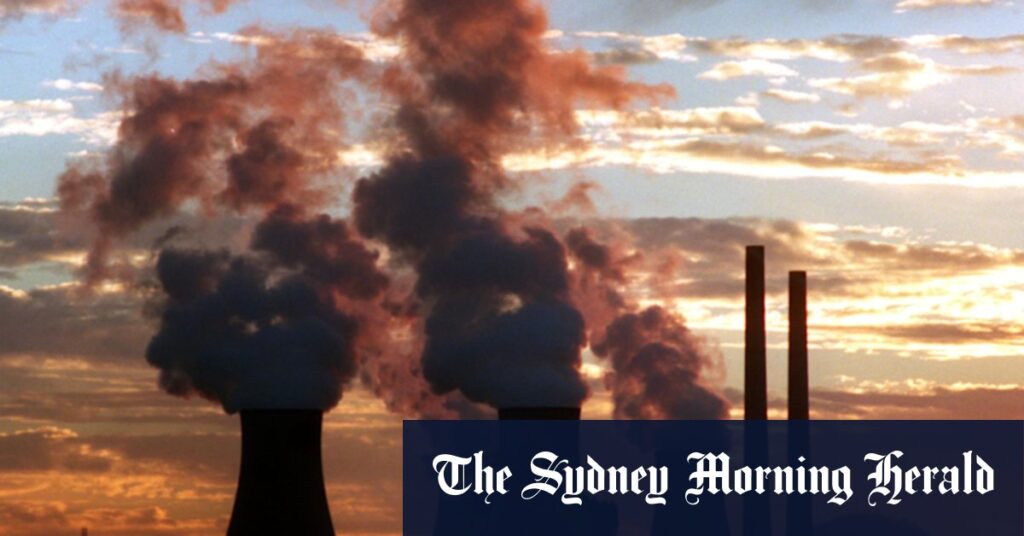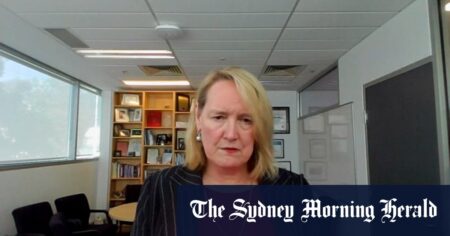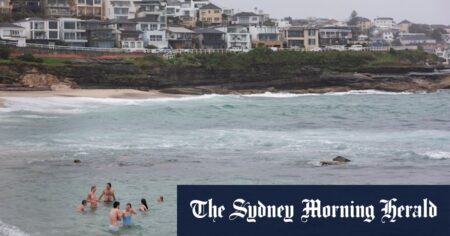The coming weeks loom as an important period in the seemingly never-ending climate wars, with Australia’s green credentials to be put to the test on three fronts.
The first involves impending advice from the Climate Change Authority on a new national 2035 emissions reduction goal. The independent authority, chaired by former NSW Liberal treasurer and climate change minister Matt Kean, is expected to recommend a target to Climate Change Minister Chris Bowen in the 65 to 75 per cent range.
Matt Kean is chair of the Climate Change Authority which will soon advise the government on a new national 2035 emissions reduction goal.Credit: Janie Barrett
Australia’s current target is a 43 per cent reduction in net emissions by 2030, set against the 2005 emissions level. Most experts believe that while Australia will fall short of reaching that, a more ambitious 2035 target of 65 to 75 per cent will still be set by the Albanese government.
Politically, the stakes are high. A bolshy target is likely to increase pressure on the government over stubbornly high electricity prices, and could get the business community seriously offside. However, the Herald urges the government to be ambitious on emissions reductions and be upfront with voters on the opportunities – and risks – of a deep cut.
As Labor thrashes out its position, the hopelessly dysfunctional Coalition continues to eat itself alive on the future of its net zero policy, with conservative Liberal forces and Nationals MPs pushing to dump a hard commitment to deep and legislated emissions cuts.
Loading
The prospect of abandoning meaningful climate policy is extraordinary, particularly given the Coalition’s thrashing at the past two elections. Liberal MPs who support dropping policy that carves a credible pathway towards net zero by 2050 must have a political death wish, and are more interested in local branch politics than national interest.
As the Herald’s Paul Sakkal reports this week, a peace offering may be in the works within the Coalition. But given it has repeatedly torn itself apart over climate policy, readers will forgive us for being deeply sceptical that this new plan will go the distance. There are also real doubts about whether a peace plan devised through the prism of internal politics represents good policy.
The third climate front heading for a potentially unhappy resolution is the curious case of whether Australia will win the rights to hold key United Nations climate talks next year.
Read the full article here

















